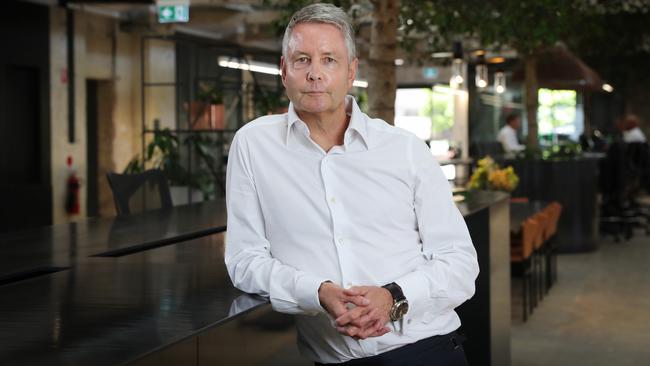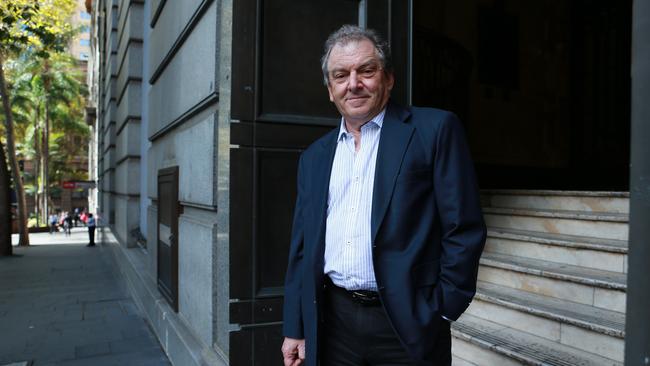Why Citi took a $70m bath on Chinese fund’s selldown of Goodman Group
Rival banks say Citi just made a ‘stuff up’ with a botched block trade of CIC shares in Goodman Group that has raised questions about the industrial property-turned-data centre developer.

For investment banking behemoth Citi and, to a lesser extent, star property stock the Goodman Group it has been the week from hell.
The global banking titan was left stuck with close to $1bn worth of unwanted Goodman stock on its books after a botched block trade on Tuesday night that became the talk of the intensely competitive industry.
After years of being feted as an industrial property powerhouse – as that sector boomed on the back of the rise of e-commerce and Goodman rolled out data centres around the world – it came under scrutiny.
The listed giant, which has been a top-10 stock, would have been surprised by the botched move by Asian sovereign fund the Chinese Investment Corporation as it sold down a portion of its stake in the real estate company. It had sold down about $500m of stock in 2012 before the company really took off and still has almost 100 million shares.
It was seeking to trim its holding by about one third after the stock’s recent run. Investment bank Citi won the mandate to sell down 50.4 million shares and pushed them out into the market at a very tight discount. But the $1.9bn selldown went wrong very quickly.

The bank underwrote the deal at $37.55 per share, however the slim discount of just 1.5 per cent to the stock’s heady price of $38.12 left the fund managers – who the bank had been expected to take up stock – disinterested.
The deal was then re-offered at a 3.3 per cent discount before about 23.4 million shares were sold at a bargain $36.40, locking in a loss of about $27m. Even then it appeared Citi was left with 23 million shares, which were sold on Friday morning.
Citi cleared the decks by taking another sizeable loss as 22.55 million Goodman shares crossed at a price of $35.35. The sale of $813m worth of shares realised a further hit of about $50m.
The disaster came ahead of the investment bank’s bonus payments, which are due shortly, and the botched deal is expected to have an impact on those payments.
Citi and Goodman have declined to comment.
But the investment bank was forced into the dramatic trades as it had over-estimated demand for Goodman stock and looked like it would be left holding the unwanted shares at a time when markets are volatile.
While the group, led by billionaire Greg Goodman, is a global operation that is still humming, its relentless rise could come under the microscope more as it makes a big shift into data centres.
It is yet to fully reveal the details of how it will fund the massive centres or how far it will go into running its planned facilities. Goodman has flagged it will be led by customer demand and, going on past form, it could set up partnerships with global pension funds to own the huge centres.
Even rival bankers insisted that the issue was not a systemic problem for Goodman, but more a “classic investment banking stuff up”. “They just completely misjudged the market, both in terms of price and also liquidity,” one rival said.
Trading in the Australian real estate investment trust sector had come off over the last half and the Goodman block was launched in the face of declining liquidity. Another source said that Goodman was still considered a great company but investors simply baulked at taking stock at such a tight discount.
Citi has been trying to restore its reputation as an investment bank globally and the losses will be a substantial blow locally. The industry was surprised by the disaster as the bank is usually renowned for taking a forensic approach to risk management on a line by line basis.
Bankers said that fees on block trades were skinny and that the market had “smelled blood” as losses on the trades unfolded.
“I heard it was growing by the day,” one banker said. “If it goes wrong there is no place to hide.”
Euree Asset Management property director Winston Sammut said that in the current uncertain investment environment, investors had been on the lookout for bargains and what was originally offered did not represent a sufficient enough discount to entice them to take out the stock “overhang”.

“This was never an issue for Goodman Group but rather for Citi who were not in tune with market sentiment when they effectively established an unrealistic floor price for CIC’s sell down and the bank suffered the consequences with a very large loss on the trade,” he said.
But the snafu swept across the real estate investment trust sector as investors sold other stocks to buy Goodman shares on the cheap and others were selling down in order to buy into the forthcoming DigiCo REIT, a rival data centre play.
Some traders see Goodman as good value ahead of it being included in major global indexes in the wake of CIC’s sell down as its free float is now higher. This is tipped to spur demand from both index funds and active managers who are measured against the index.
But longer term, the rise of the Goodman Group, which already makes up about 47 per cent of the index, is beginning to pose its own challenges as whenever it stumbles the sector is hit.
Mr Sammut said that Goodman’s outlook remains sound. “It is a well managed enterprise, exposed to the in favour industrial and logistics sector with an expanding exposure to data centres,” he said.
With the stock cleared on Friday it was back trading above $37 in midday trading, making Citi’s nightmare week all the more perplexing.




To join the conversation, please log in. Don't have an account? Register
Join the conversation, you are commenting as Logout